 Go Back
Go BackShare
Leveraging Institutional Structures to Enhance Implementation Fidelity: Experience from Mission Samrath
By Mridul Dhyani and Shagun Tyagi
Jul 16, 2024
Punjab launched Mission Samrath in 2023. Designed to cater to students in Grades 3 to 8 in the first year and Grade 2 in the successive year, the mission follows the Teaching at the Right Level (TaRL) approach to bridge FLN gaps among students across primary and upper primary grades. This blog unpacks critical reform initiatives undertaken as part of Mission Samrath and how they may be contextualised to strengthen implementation of other large scale FLN projects in India.
Punjab has over 26 lakh students enrolled in more than 19,000 state government schools, supported by over 1.2 lakh teachers. Foundational Literacy and Numeracy (FLN) has been a focus area in the state even before it became a national priority under the National Education Policy (NEP) 2020. The state has been implementing FLN initiatives under the aegis of the Padho Punjab Padhao Punjab Mission since 2008. The results of these persistent efforts were reflected in the National Achievement Survey (NAS) 2021, where Punjab emerged as the top performing state. However, multiple learning surveys highlighted the need for improvement in FLN competencies in the state.
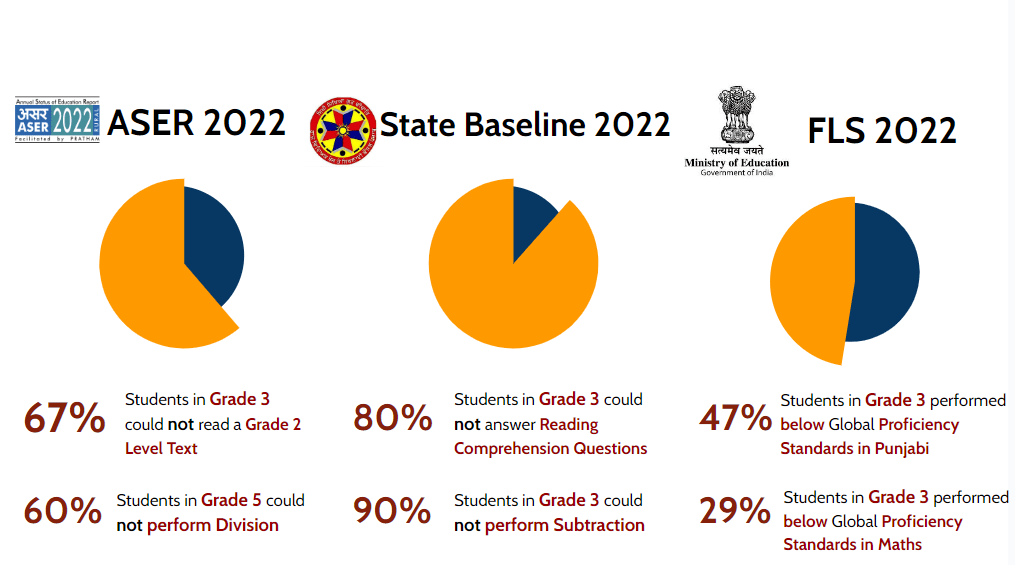
In line with this, Punjab launched an FLN initiative, Mission Samrath, in 2023, to strengthen foundational learning for all children. Designed to cater to students in Grades 3 to 8 in the first year and Grade 2 in the successive year, the mission follows the Teaching at the Right Level (TaRL) approach to bridge FLN gaps among students across primary and upper primary grades.
Implementing the Mission across the state has significantly enhanced children’s learning levels. According to the assessments conducted by teachers across ~19,000 schools in May 2024, there was a substantial increase ranging from 3 to18 percentage points across various student competencies, as compared to the baseline conducted in April 2024.
This blog unpacks critical reform initiatives undertaken as part of Mission Samrath and how they may be contextualised to strengthen implementation of other large scale FLN projects. These include:
1. Systemic Alignment and Prioritisation through the State Steering Committee
Government systems are dynamic and complex, requiring sustained political and bureaucratic commitment, shared accountability and clear prioritisation of initiatives for reforms. In order to ensure that FLN remains the highest priority among other initiatives, a highly empowered State Steering Committee was instituted in November 2023. The committee comprised key state stakeholders, a Punjab Development Commission member and representatives from the education department and civil society organisations (CSOs). While the State Council of Educational Research and Training (SCERT) and Central Square Foundation (CSF) serve as the Project Management Unit, Pratham and The Education Alliance are academic and technical partners for this. This steering committee with a diverse set of highly empowered individuals meet weekly to gather feedback and make data driven decisions in a consultative manner.
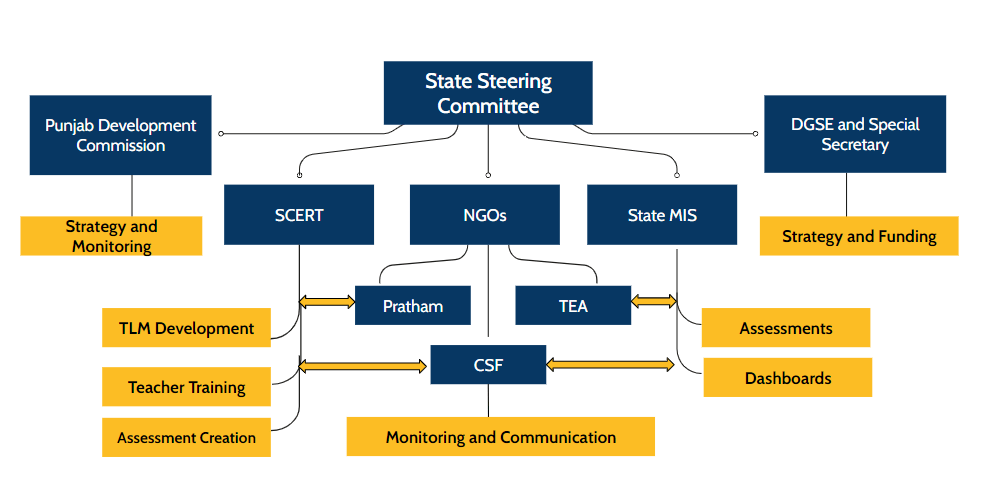
This state-level best practice of data-driven review meetings was further replicated at the district level. CSF supported in building and maintaining this cadence by offering training to the district officials and sharing feedback on Mission components and protocols based on the meetings conducted.
2. Integrating Technology for Effective and Sustainable Data Collection, Visualisation and Analysis
With one of the highest percentages of internet subscribers in the country, the Punjab state education department leverages technology at various fronts to gather data with respect to attendance, transfers, enrollment, school infrastructure etc. Keeping this in mind, the steering committee relies on existing platforms such as Tangerine mobile application, and ePunjab portal to facilitate real-time monitoring data for officials and to collect student assessment data respectively.
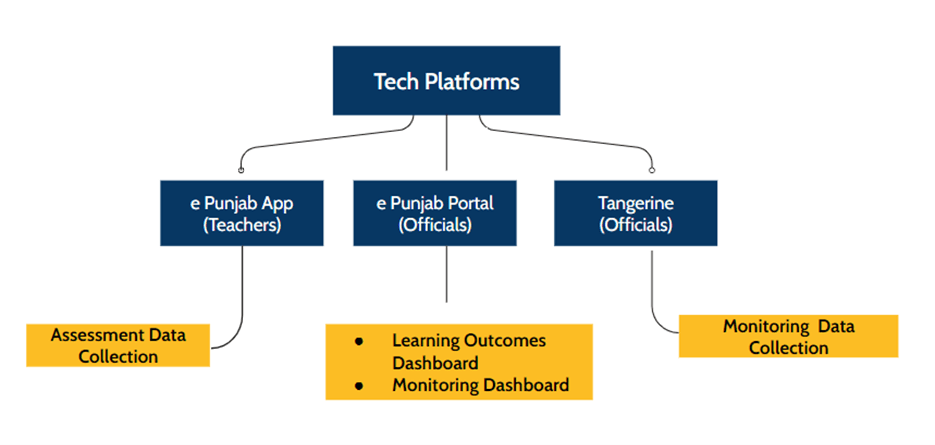
● Assessments
In collaboration with CSF, an assessment module was conceptualised in October 2023 for the collection of student learning data on the existing ePunjab application used by teachers. The module design is intuitive and teacher-friendly to facilitate seamless data collection.
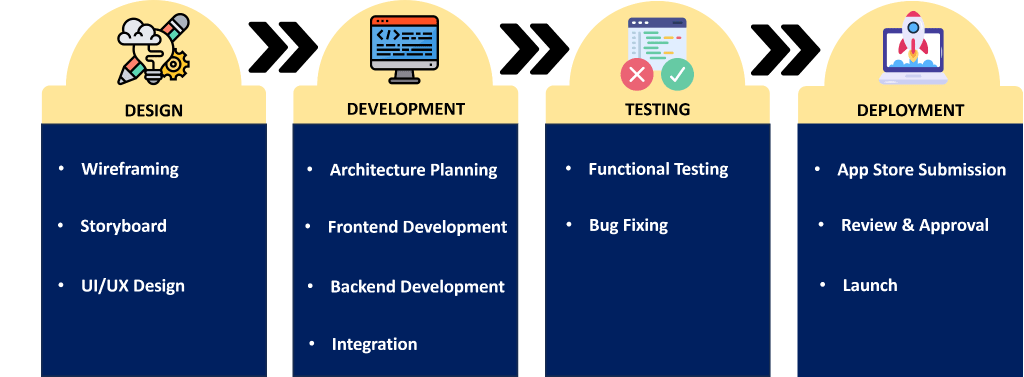
To ensure effective usage of the module on the application, training videos were shared with over 70,000 teachers in the state. Regular nudges in the form of videos and images were deployed around the assessment days to reinforce training.
Post data collection, CSF also developed a simple yet interactive dashboard on the state portal, allowing officials at different levels (district, block, cluster and school) to access data for all schools in their jurisdiction. This data was instrumental for the state in revising Mission Samrath goals and teaching and learning materials (TLMs), conducting review meetings with district officials and identifying focus regions for additional interventions.
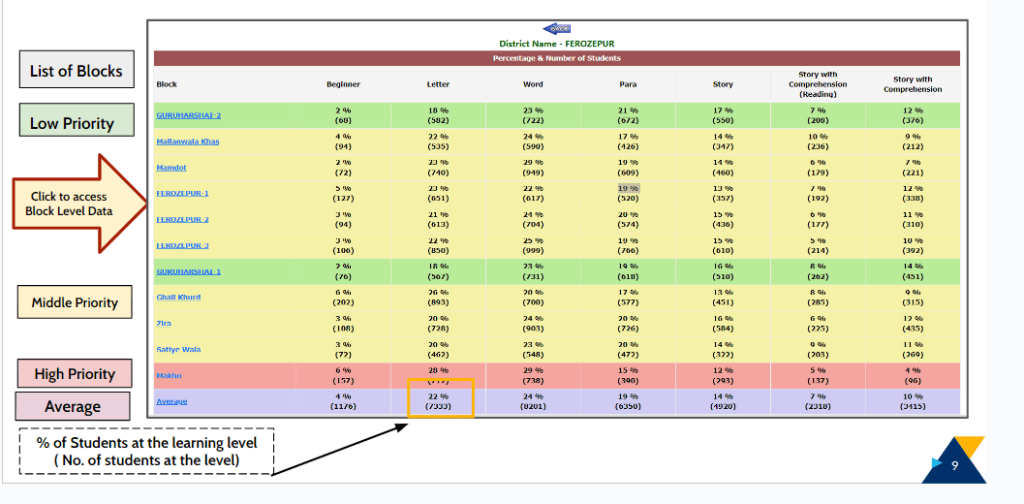
CSF supported the state in setting up a monitoring system to track the implementation of Mission Samrath’s inputs and processes using the Tangerine mobile application. Its unique features including offline functionality, compatibility with Android and iOS and vernacular integration, among others, made it an ideal monitoring tool in the state.
● Monitoring
Some of the key features of monitoring under Mission Samrath include:
(a) Defining school visit protocols for officials at different levels (state to cluster)
(b) Building capacity of monitoring officials on various elements of classroom observation
(c) Developing guidelines and standardised rubrics for school visits to assess the quality of pedagogical processes
(d) Conducting SPOT assessments to check reliability of teacher-led assessments.
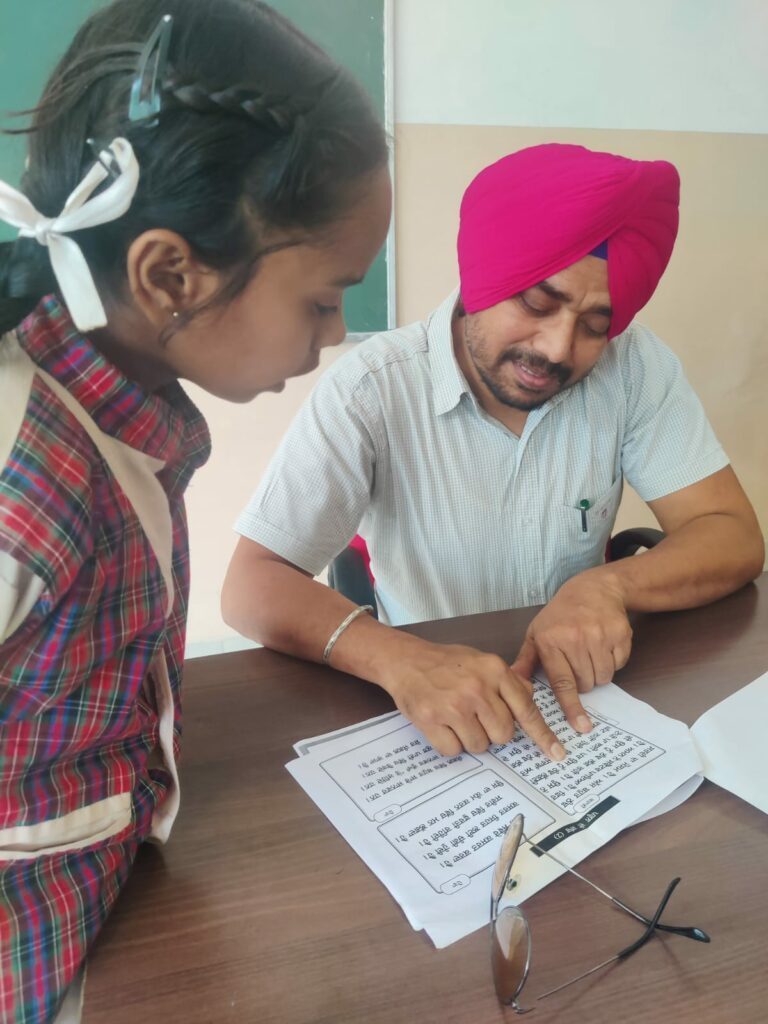
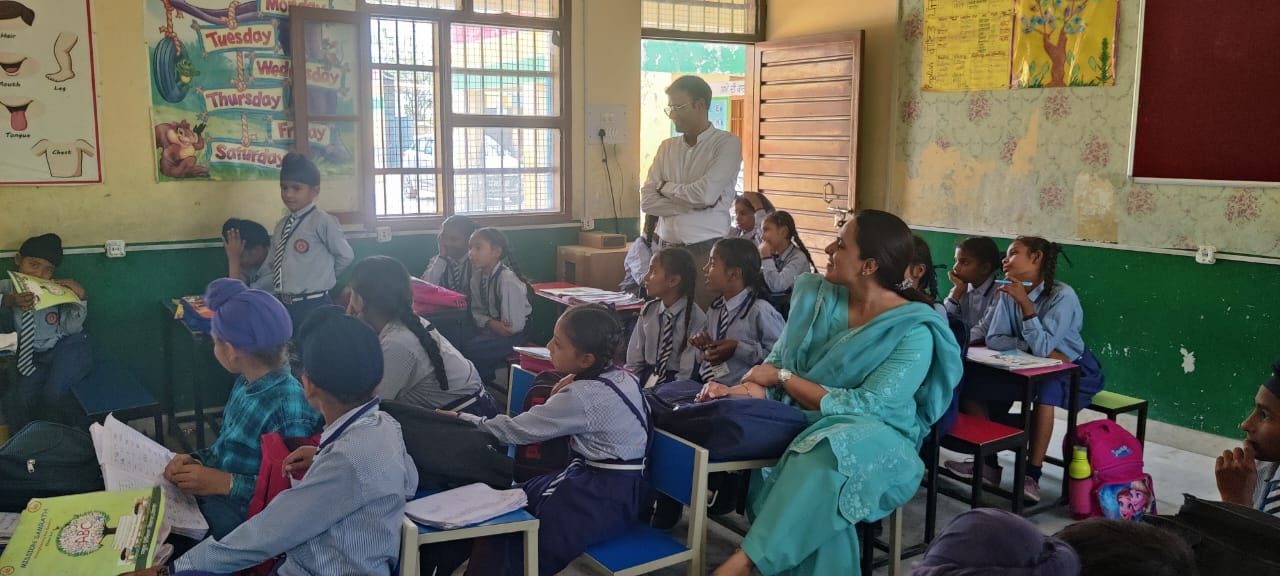
Additionally, CSF developed a monitoring dashboard to ensure data accessibility for different officials; this was eventually integrated into the ePunjab portal. Insights from the data were used in review meetings to improve the Mission implementation. The monitoring cadre covered over 10,000 schools (i.e. nearly half the schools in the state) during the initial phase.
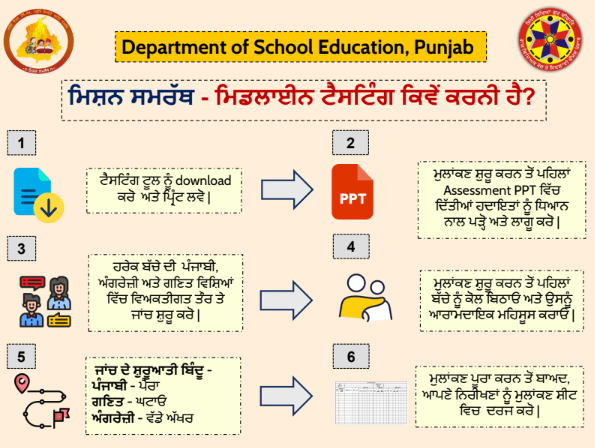
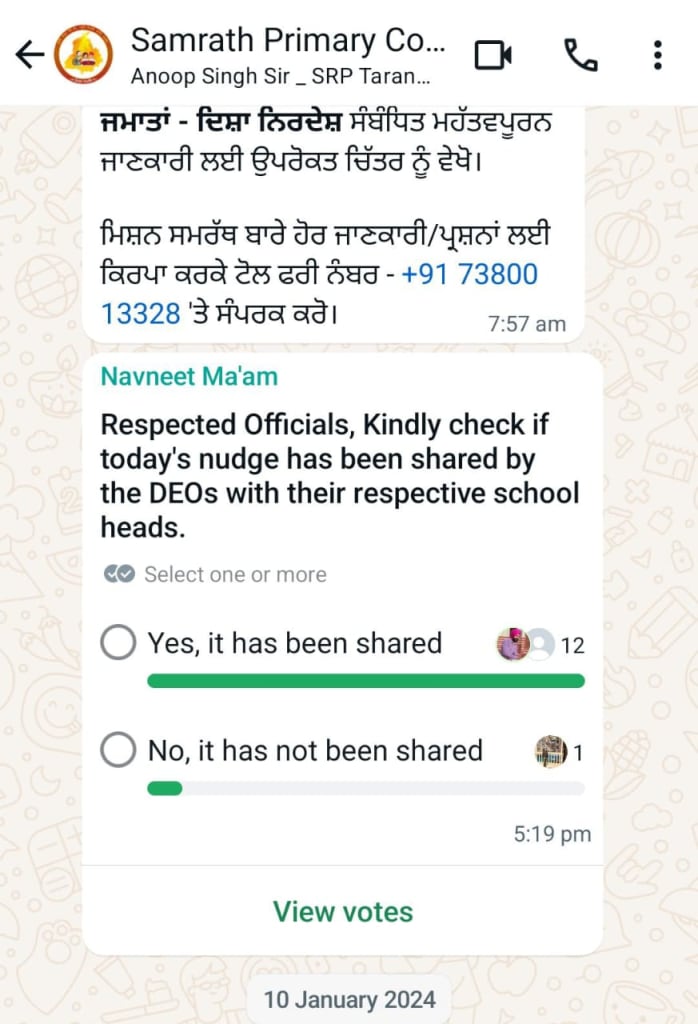
3. Constant Communication and Reinforcement
Alongside Mission Samrath, the Government of Punjab has been implementing several educational programmes for different age groups. Keeping this in mind, ensuring Mission Samrath remained a priority in the state and addressing implementation gaps was crucial. Hence, CSF designed a comprehensive communication plan, employing multiple strategies to create awareness and address gaps in a structured and timely manner.
Some of the communication strategies deployed under the Mission included:
● Byte-sized content: these were developed and shared daily in the form of images, short videos and reference notes to reinforce academic and administrative structures in the state. A wide WhatsApp community of teachers and officials facilitated this consistent communication. Last-mile delivery of these nudges to teachers was also sample-checked through monitoring visits, WhatsApp polls and phone surveys.
● Positive reinforcements and celebration of best practices: new learnings and innovative practices adopted by teachers across the state began to be widely recognised. Some were even posted by the Hon’ble Education Minister on his social media handles. Rewards and recognition were also made part of every review meeting held at the state and district levels to motivate stakeholders to advance Mission Samrath in the state.
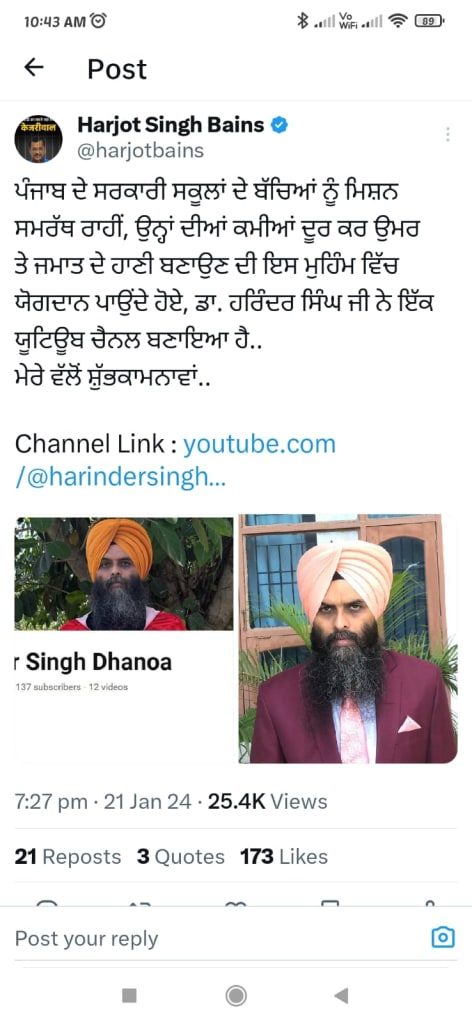
● Access to a repository of resources on a single platform: the project management unit (PMU) ensured accessibility of a repository of essential resources to parents, teachers and students across the state through the Punjab Educare website, a widely used platform in the state.
● Dedicated helpline for Mission Samrath: a dedicated helpline number was instituted in November 2023 by the state to address any queries related to Mission Samrath. These queries were then analysed to identify patterns that further facilitated the development of daily nudges which were subsequently shared across the state.
● Sharing learnings and seeking feedback: after the initial phase of Mission Samrath in February 2024, learnings were shared with the wider education ecosystem through a day-long conference. Education practitioners collaboratively explored various FLN practices across different contexts. Open dialogues with the Punjab Department of School Education helped understand various perspectives and design the future of Mission Samrath.
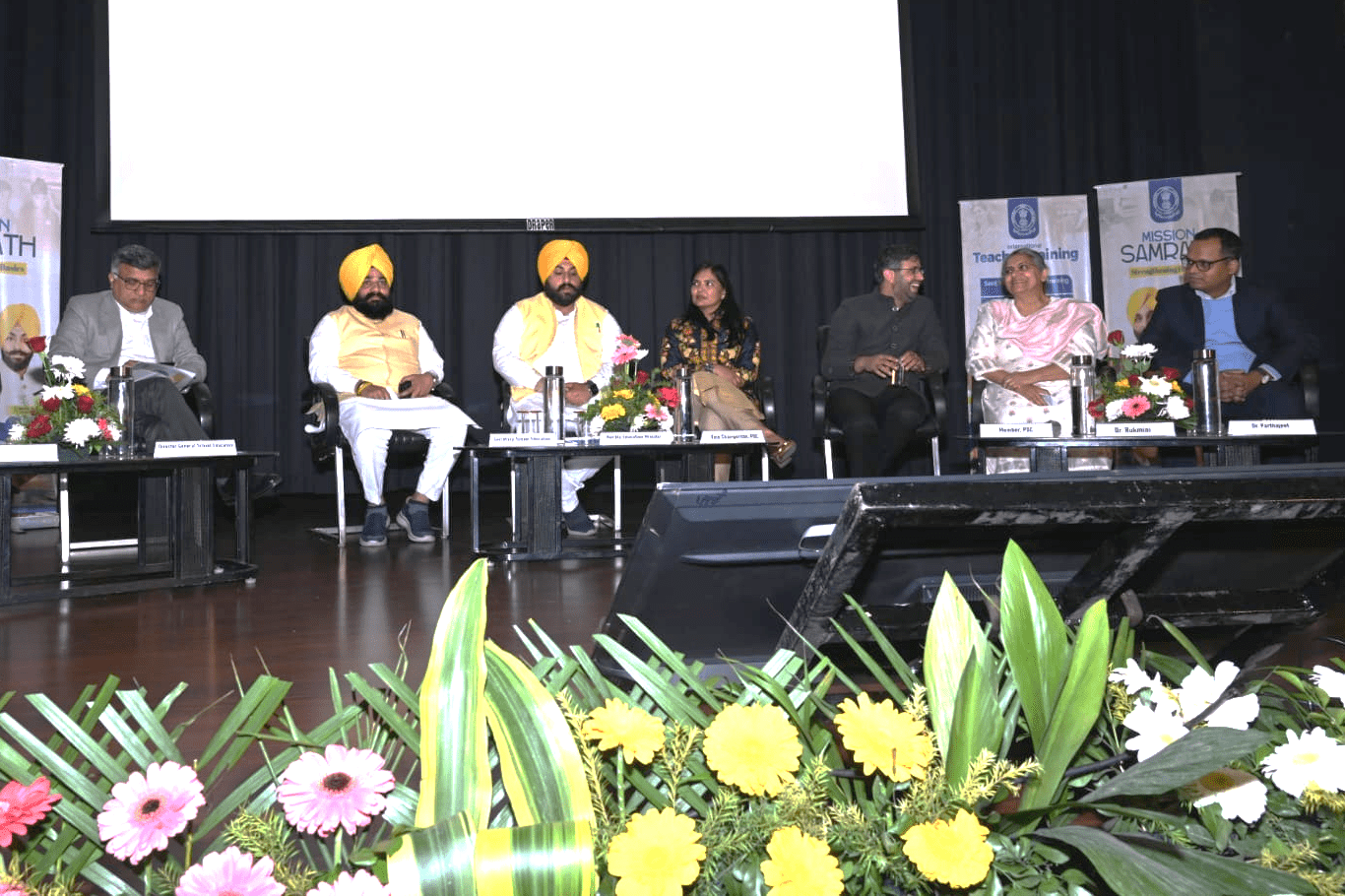
Learnings from Mission Samrath
The journey of Mission Samrath’s conceptualisation to implementation is filled with diverse learnings. In the following section, we reflect upon key learnings throughout the course of the Mission:
● Regularising steering committee meetings: establishing consistent practices and procedures for conducting effective, efficient and productive meetings is crucial.
● Achieving seamless tech integration: ensuring dedicated follow-ups and collaborative work with the MIS team while troubleshooting and validating learning data is key.
● Communication for awareness and adherence: implementing a structured framework of daily updates proved to be pivotal in ensuring that stakeholders at both mid and grassroots levels understood the significance of the mission.
Mission Samrath is a story of commitment, consistency and collaboration. It has resulted in the development of comprehensive structures, frameworks and strategies that can now be employed to ensure the effective implementation of any large-scale programme in the state. Mission Samrath reflects a sustainable, scalable model of collective governance and partnerships aimed at enhancing foundational learning competencies of children.
Keywords
Authored by
Mridul Dhyani
Project Manager, Strategic Support States - Punjab
Shagun Tyagi
Project Manager, Strategic Support States - Punjab
Share this on
